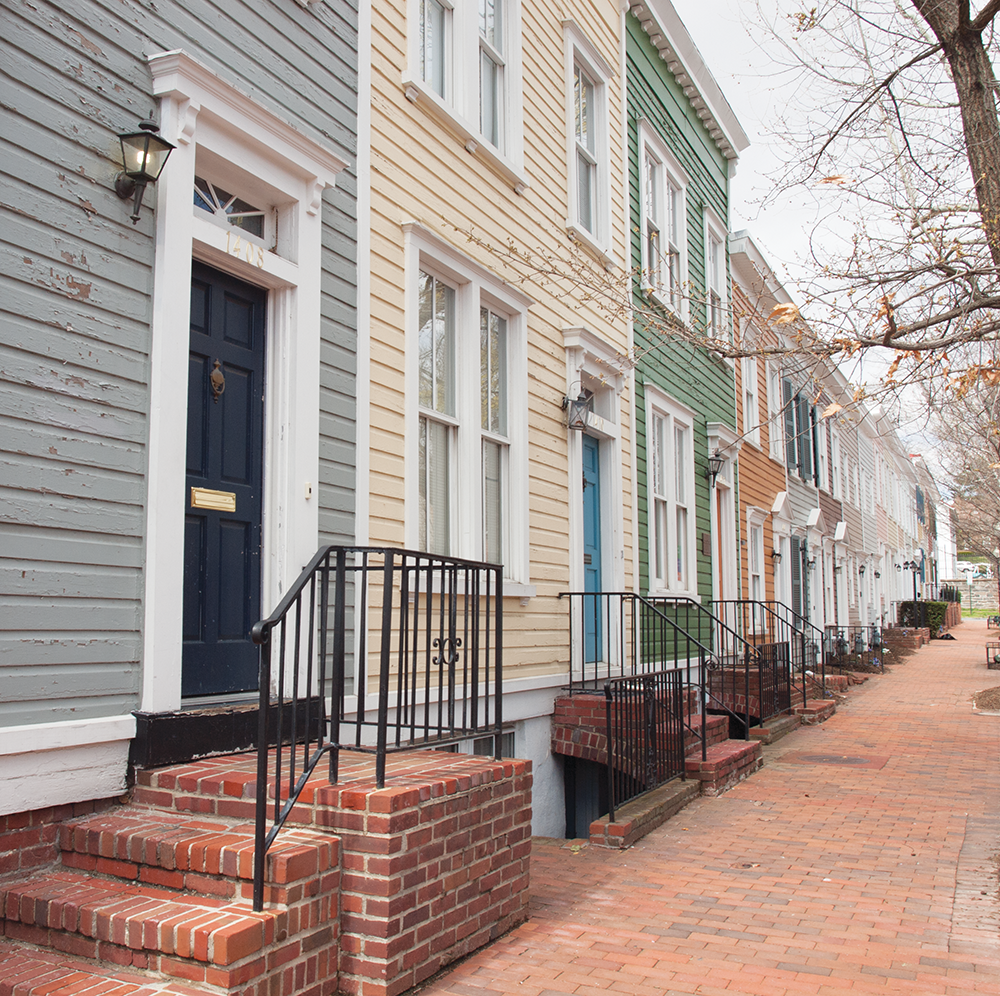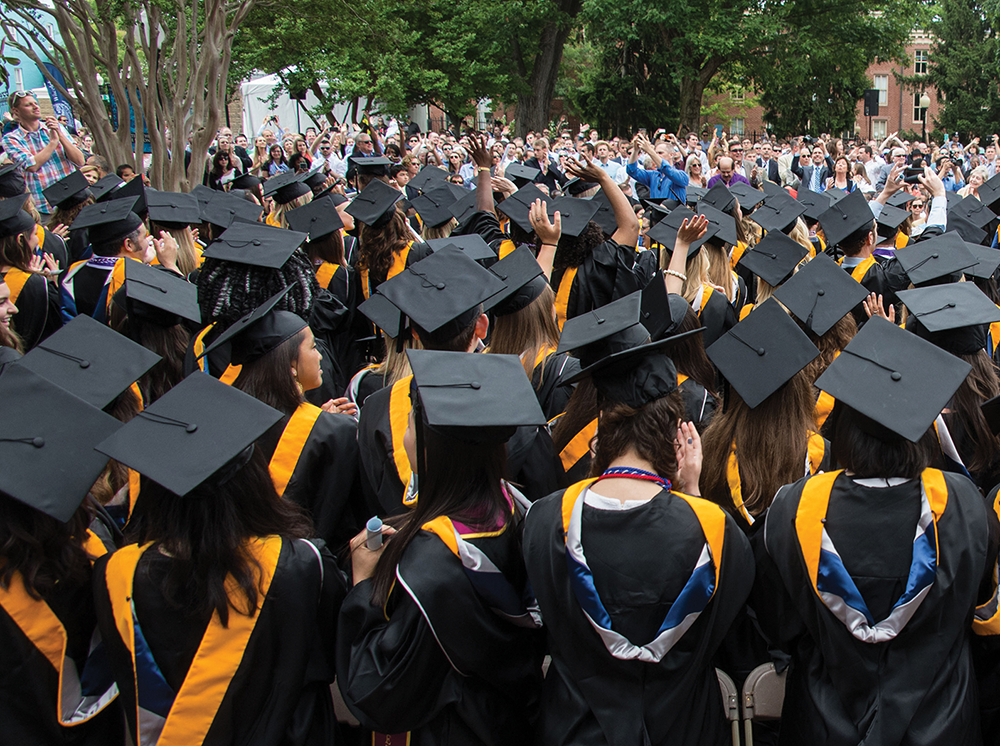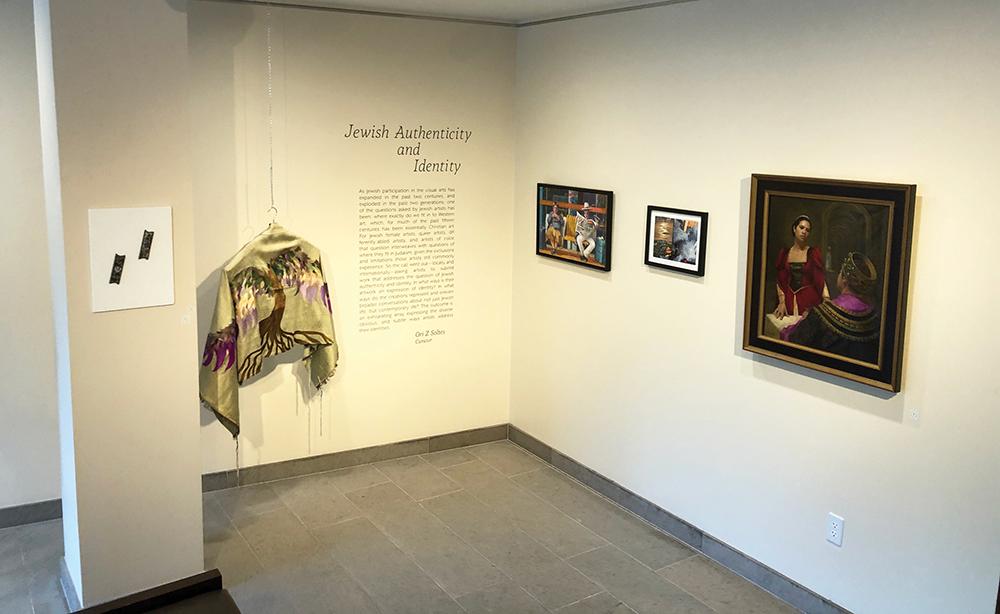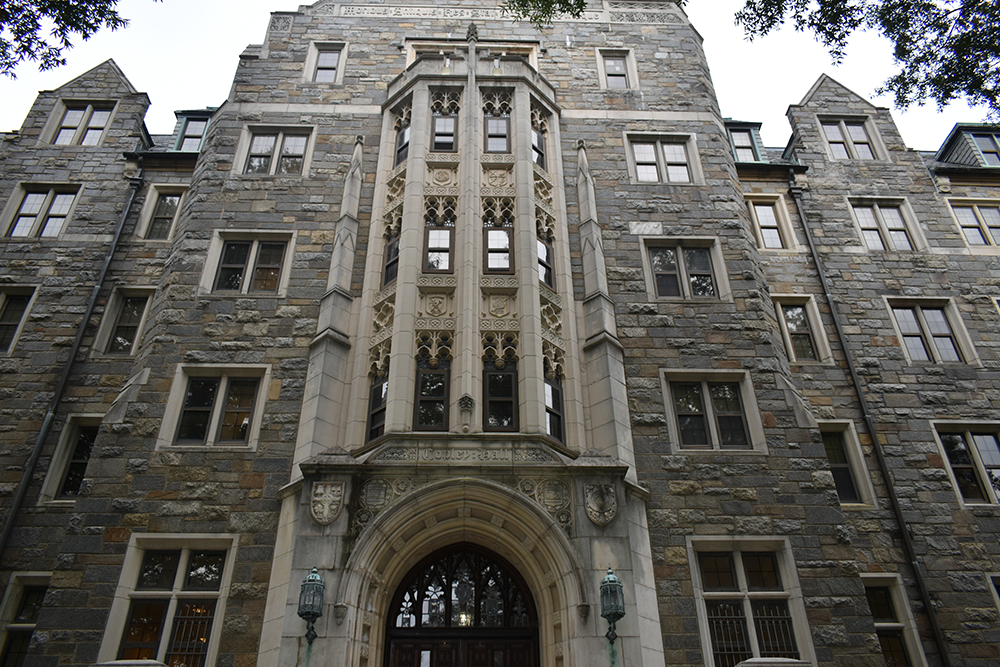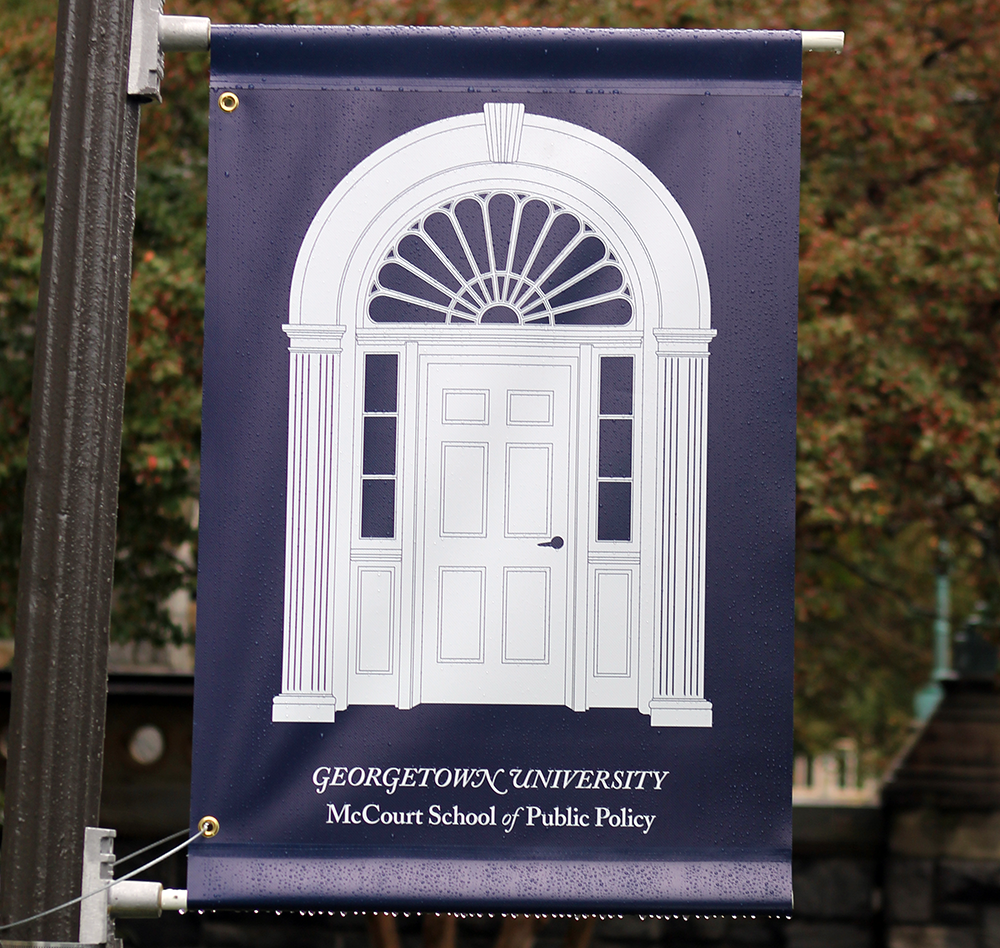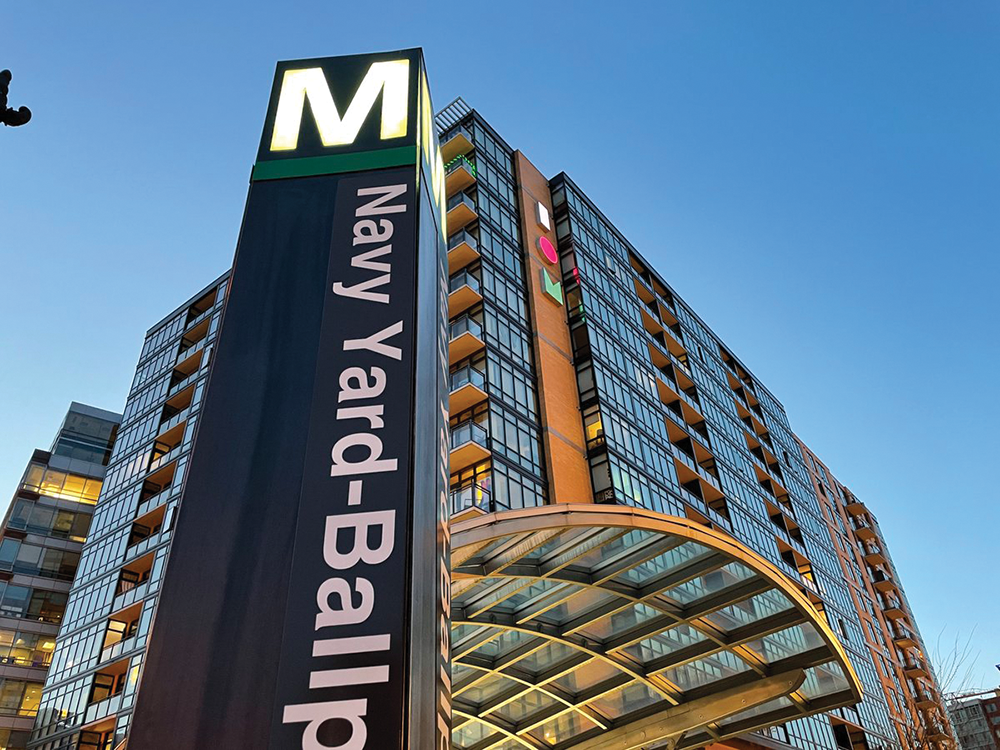On a typical spring day, pedestrians would wander from store to store in the Georgetown neighborhood’s bustling shopping district. This week, however, customers have deserted the streets as local business owners limited services or shut down entirely in the face of the COVID-19 pandemic.
Washington, D.C. Mayor Muriel Bowser ordered the closure of several nonessential businesses March 16 and extended the mandate to close all nonessential businesses March 24, temporarily shuttering establishments along M Street and Wisconsin Avenue. Many businesses that are not explicitly required to shut down by the mayor’s order have also chosen to close in an effort to slow the spread of the virus.
Limiting in-person interactions with customers to combat COVID-19 outweighed the economic costs of temporarily shutting down, according to Krista Johnson, owner of Ella-Rue, a boutique on P Street that closed March 15.
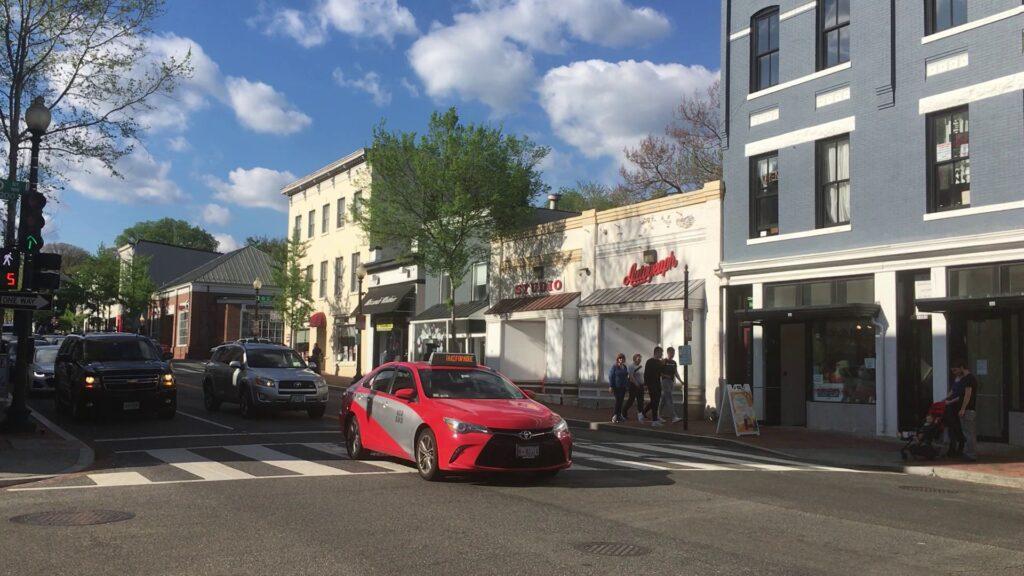
“Our physical store is closed because I just wanted to flatten the curve and not risk us getting sick, or us getting a client sick, or wanting people to leave their homes and come shop,” Johnson said in an interview with The Hoya. “There’s no price on human life.”
Some local establishments, particularly stores selling food and necessities, have chosen to remain open and implement new safety protocols. Dent Place Market, a gourmet food shop on 34th Street, has seen a decline in customers but is choosing to stay open while disinfecting surfaces and handles as well as limiting the number of people in the market at a time. Continuing to sell goods will benefit the local producers, Operations Manager Vivien Tsang wrote in an email to The Hoya.
“We’ve definitely seen less traffic, but we’re super thankful to even be open during a time like this. We’re also grateful to work with so many small businesses and a local farm who can still provide us with goods to sell,” Tsang wrote. “To be able to still support them during a time when the restaurant industry is suffering is very important to us.”
Closing or enforcing safety protocols is the right way to keep the community safe but may harm establishments financially in the long run, according to Rachel Shank, executive director of Georgetown Main Street, a nonprofit that seeks to promote local small businesses.
“I think something that we do know is that it’s going to last longer than we’re expecting, through March certainly, maybe into April,” Shank said in an interview with The Hoya. “The longer that people can’t go into a beautiful boutique and feel the clothes themselves, or get a massage, or smell essential oils, or what have you, all of the different amazing services that our small businesses have, the more devastating it’s going to be.”
Organizations like Georgetown Main Street and Georgetown Business Improvement District have been coordinating with local businesses to assess their needs. The efforts, including sending out surveys to businesses and compiling a master list of what services establishments are still offering, have sought to support the businesses and stimulate consumer interest.
Despite such measures, the consequences of the COVID-19 pandemic will likely take a lasting toll on local businesses of the Georgetown economy, Lauren Boston, communications director for Georgetown BID, wrote in an email to The Hoya.
“As a business improvement district, the vitality of our restaurants and retail is obviously of huge concern,” Boston wrote. “Our commercial district will feel the tremendous economic effects of COVID-19 over the coming months and beyond. To what degree, we’re unsure.”
Bowser’s closure order comes days after declaring the COVID-19 outbreak a state of emergency which gave the mayor new powers including mandating curfews and quarantine March 7. Georgetown University decided to convert to online learning to facilitate social distancing March 11.
COVID-19 closures have made it hard for business owners to support and find work for their employees, according to Alison Alleva, owner of Georgetown Massage & Bodywork, a wellness center on Wisconsin Avenue that closed because of COVID-19 on March 16.
“I think for me, as a business owner, my heart goes out to all my staff,” Alleva said in an interview with The Hoya. “Honestly that’s what I’m struggling with right now, is just feeling bad that I can’t give them work, and they kind of rely on us.”
Some local establishments have executed mass layoffs, including Compass Coffee, which has a location on Wisconsin Avenue and whose coffee is sold by The Corp. Compass laid off 80% of their staff, informing affected employees of the move in a March 17 email, according to The DCist.
One solution to soften COVID-19’s financial blow may include deferring taxes for local businesses, according to Johnson.
“If anyone could lobby the D.C. government to defer tax payments and personal property taxes, that would help immensely,” Johnson said. “To build the economy up, we all need to support local business, and not order from Amazon, and just bring back our economy bit by bit by supporting those around us.”
The Office of the Deputy Mayor for Planning and Economic Development invested 25 million dollars into a recovery microgrant program for small businesses and opened applications on March 24. Local businesses could receive up to 25,000 in aid to cover short-term financial needs like employee wages, according to the DMPED’s website.
Some business owners are also encouraging customers to purchase a gift card to use at a later date, shop online or take advantage of curbside pickup and delivery services, Boston wrote.
“We encourage everyone to support our local businesses in alternative ways,” Boston wrote. “Consider purchasing a gift card to use at a later date, shop online, or take advantage of curbside pick-up and delivery services at our restaurants.”
Shank said the wealth of the Georgetown neighborhood makes revitalization of local businesses possible but depends upon residents’ patronage.
“There’s still money in the community, and it’s just finding creative ways to inject that money back into the economy,” Shank said. “It’s figuring out how to support small businesses without putting yourself in danger, putting your family in danger.”








